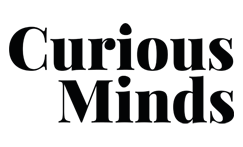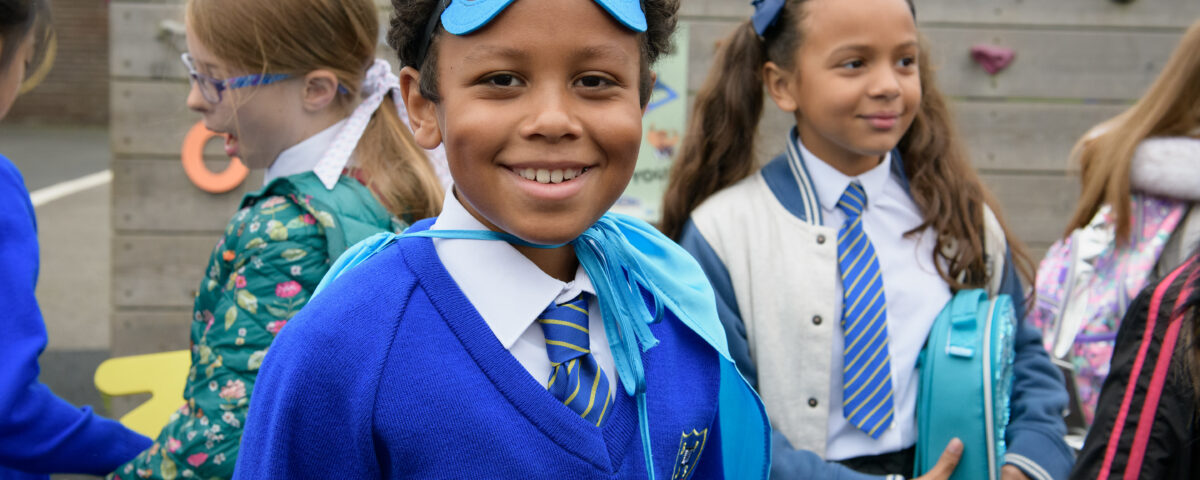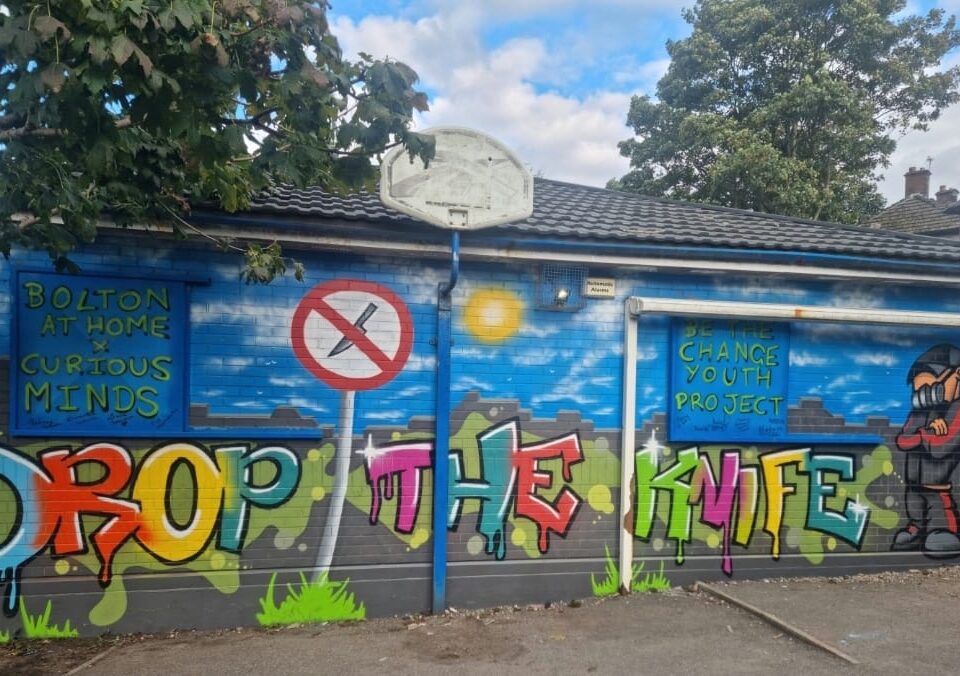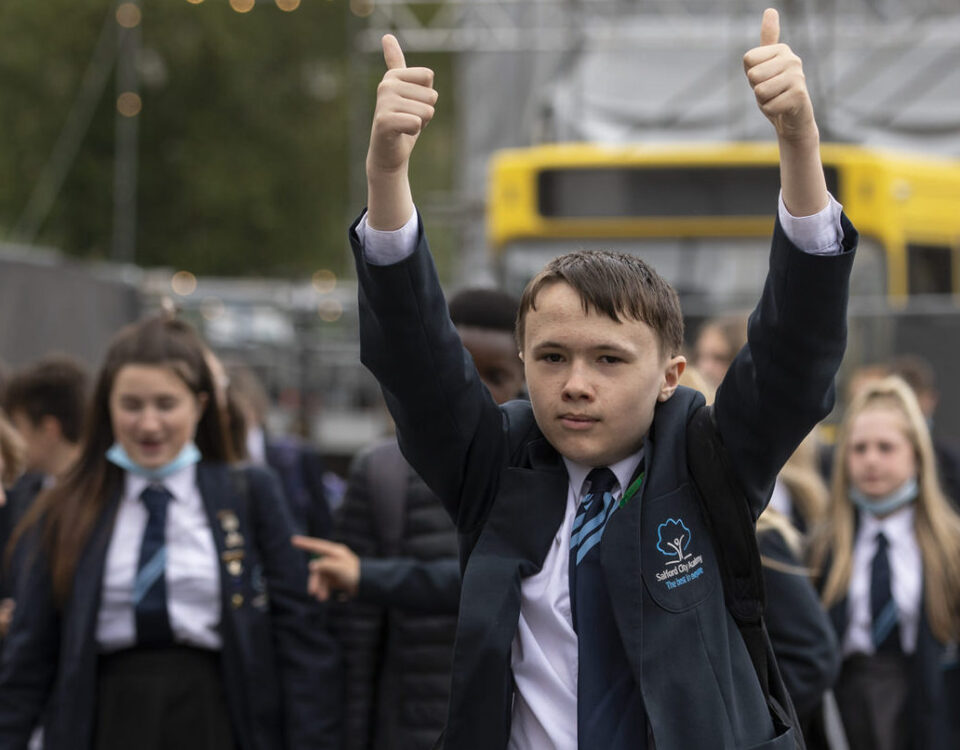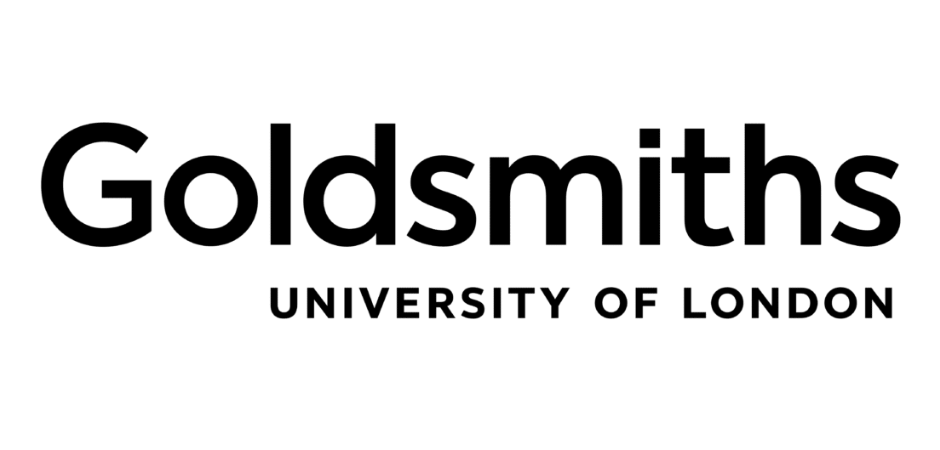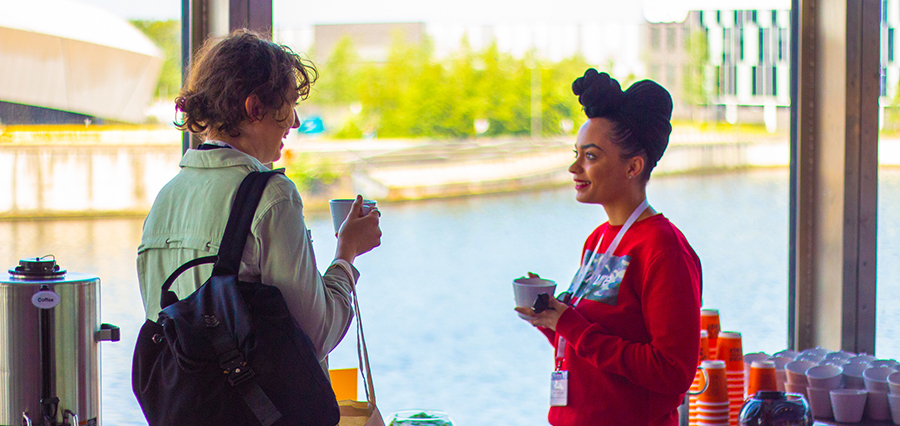
Bridging the Diversity Gap
June 11, 2020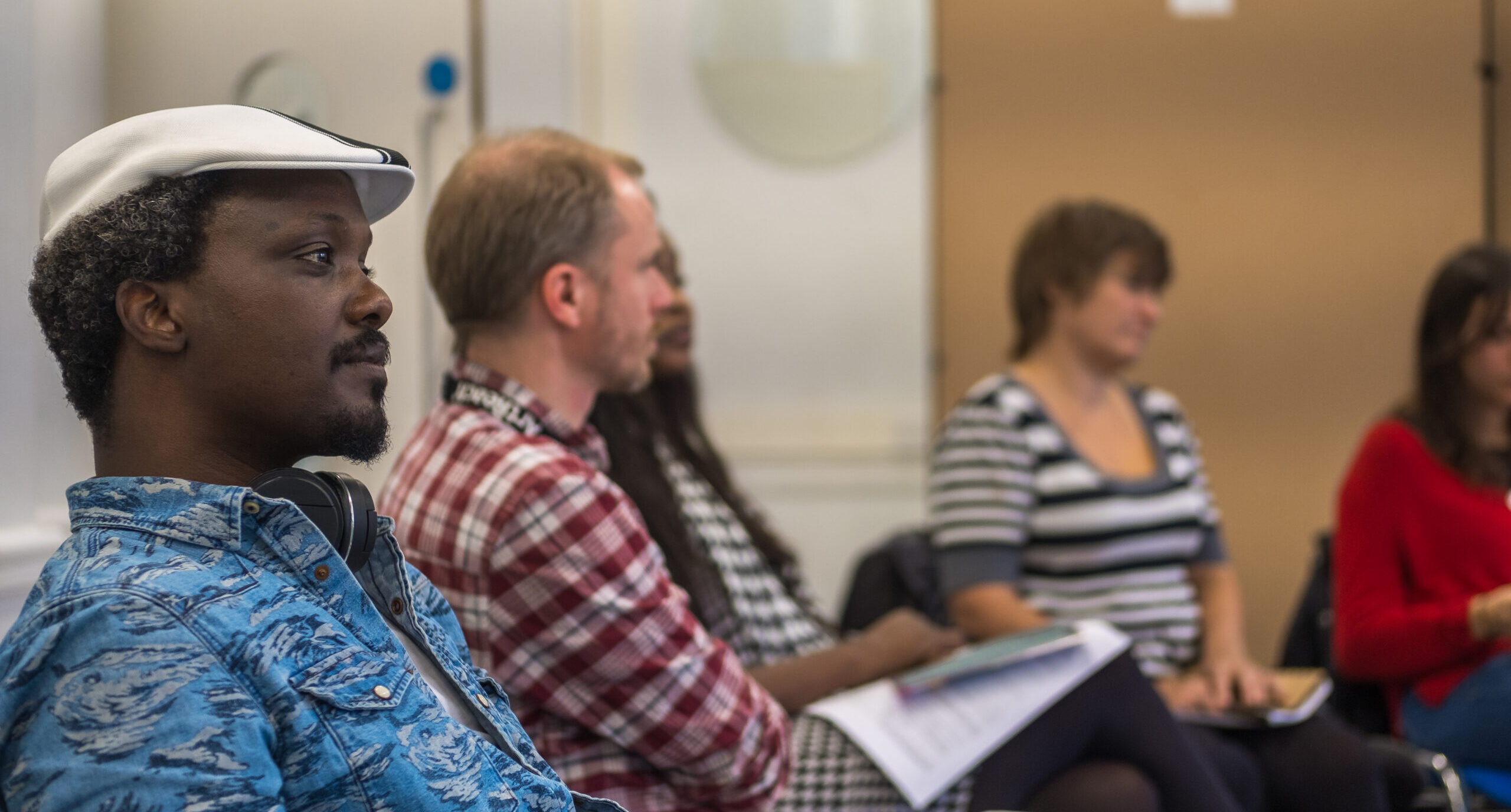
Still curious about Creative Sanctuary
June 19, 2020Superheroes: Words are our Power
Alice Bunker-Whitney, Project Manager for Children & Young People at Writing on the Wall, shares the story of an impactful CPD session that took place last week
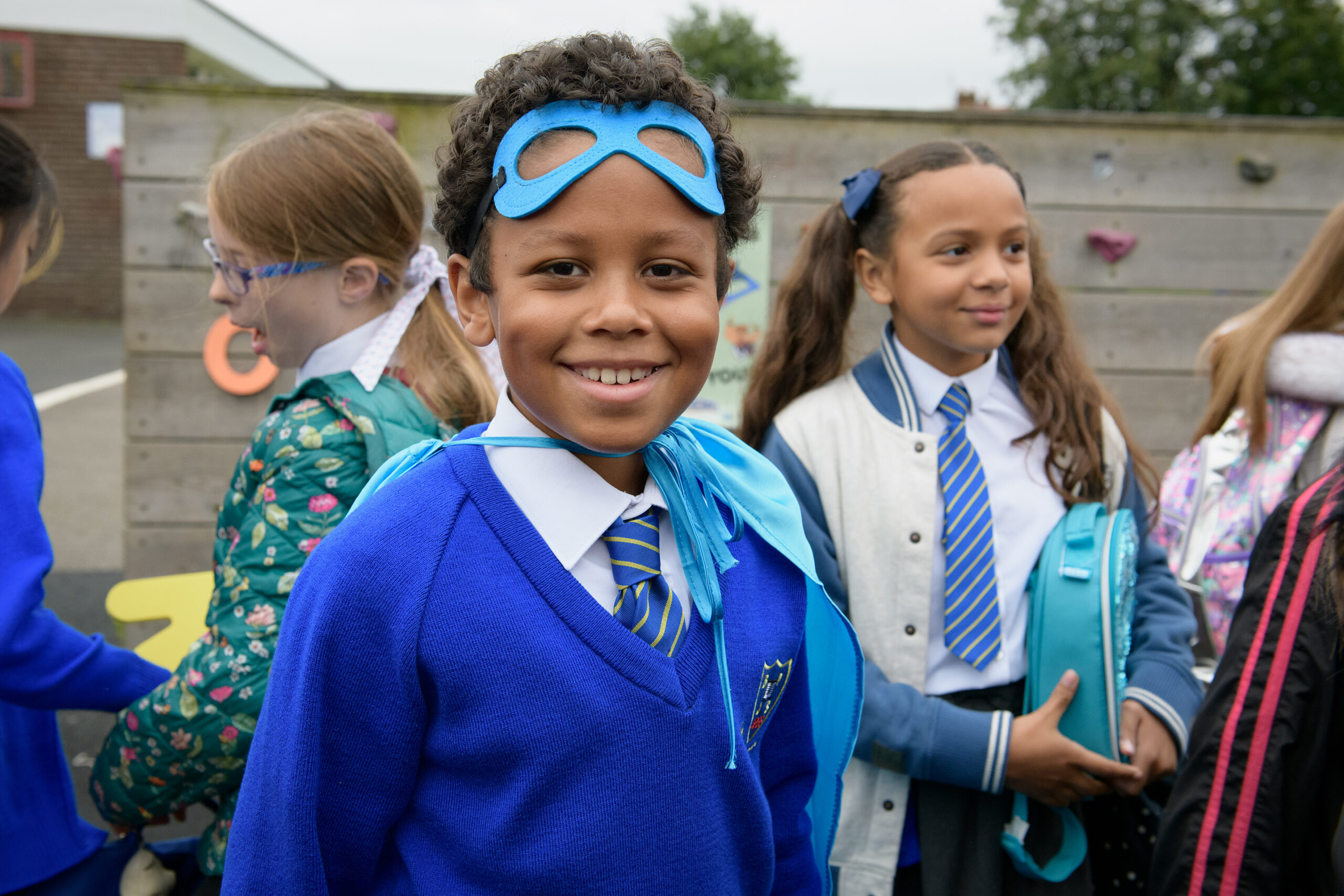
In March, like the rest of the country, we packed up our capes and transferred our superhero base to our homes, becoming superheroes from our sofas, but we still wanted to remain connected with our eight fantastic schools.
We started putting a plan into action, and contacted the brilliant Darren Chetty to deliver a session of Continual Professional Development (CPD) using our favourite new gadget Zoom!
Darren Chetty is a writer, and Teaching Fellow at University College London. He has published academic work on philosophy, education, racism, children’s literature and hip-hop culture.
The session focused on how the books we read with children and the conversations that follow inform the creative writing that they produce and influence how they see themselves in the world. We explored identity, race, culture and difference and how we need to make lasting and consistent change to how race and representation is explored in the classroom.
“We learn so many things from reading stories, including the conventions of stories such as good versus evil, confronting our fears and that danger often lurks in the woods. The problem is that, when one of these conventions is that children in stories are white, English and middle-class, you may come to learn that your own life does not qualify as subject material.”
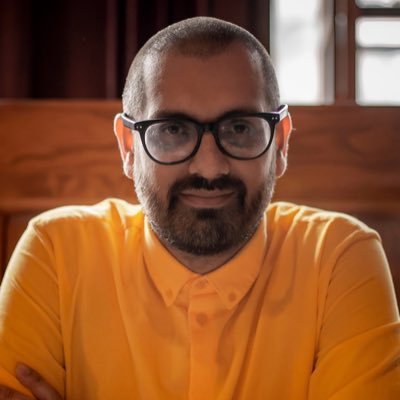
Darren chatted about the importance of children understanding what imagination actually means:
“Imagination is built from knowledge and experiences, and what we call imagination is the interesting re-assemblage of experiences whether they be read or lived. Once children really internalise and recognise that, they realise that they’ve got a whole lot more resources than they first thought.”
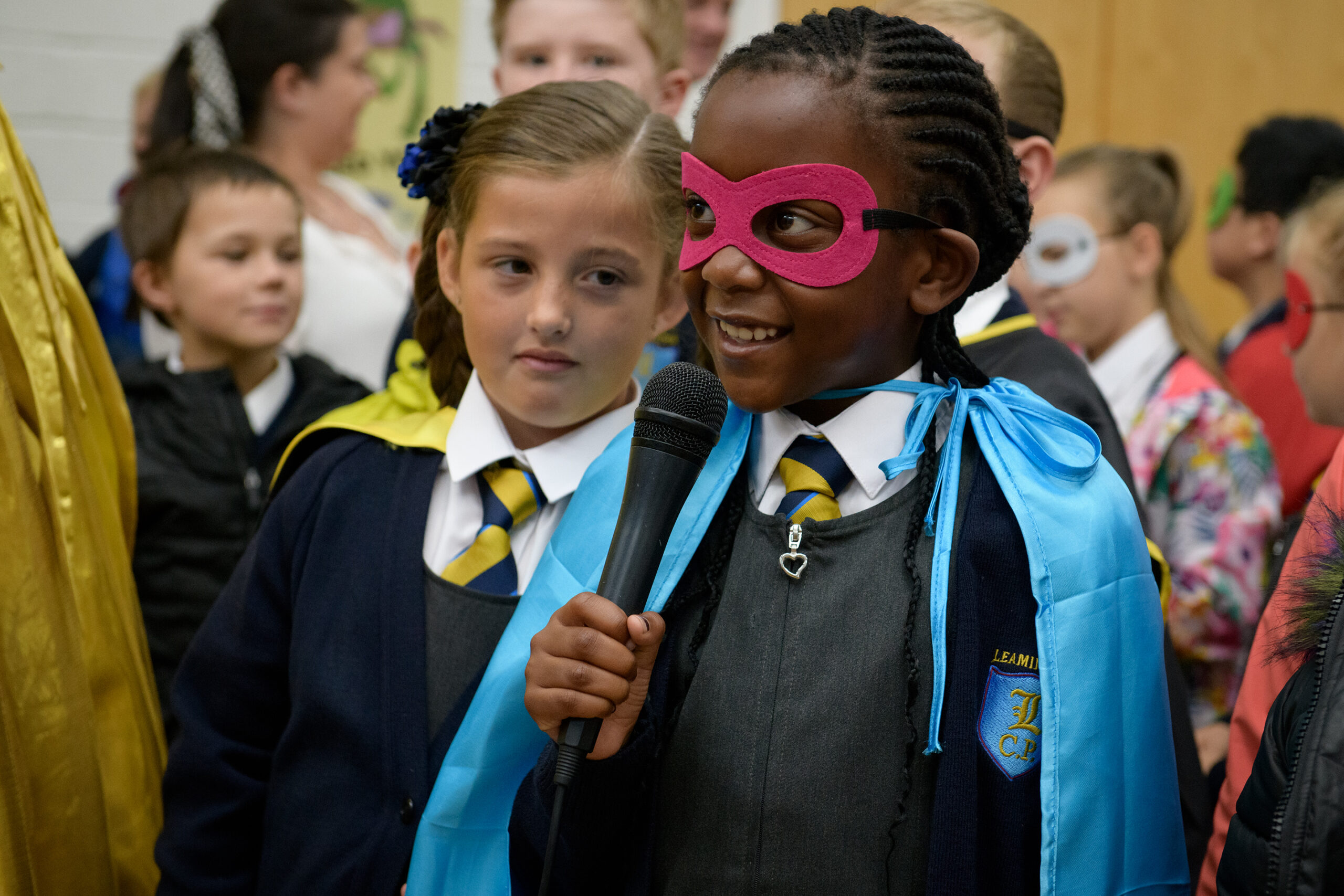
“Every child should have the opportunity to hear stories about the people in our world (and) we should actively encourage children to draw from their own experiences when creatively writing.”
We realise this is not a quick fix, it’s not a list of 12 books, but training like this, and the conversations that followed, are an essential place to start. It shows a readiness to start to make impactful change.
Here are some other ways that Darren suggested to start making change:
- Have a wider conversation with the whole staff team about race, racism and representation in the classroom.
- Look at all of the reading materials used in the classroom and review regularly.
- Be honest with your colleagues about your fears of talking about race and racism.
- Show solidarity with staff who are POC but know that it’s not their responsibility to find all the solutions and lead on this work.
- Do it through creative work, where racial identity is just one of the factors, as is language or religion.
- Team teach and support each other.
- Communicate your values with the class.
“It made me really consider the extent to which the resources in our school and curriculum reflect the diversity of the country we will in. It also made me think of texts we which represent BAME as protagonists and in which contexts or settings. Most importantly it made me question my own practice to consider ways to ensure that children in our school write about people like themselves as the protagonists in their writing.”
Writing on the Wall
Writing on the Wall (WoW) is a dynamic, Liverpool-based organisation which celebrates writing in all its forms through year-round writing development projects and an annual month-long literature festival.www.writingonthewall.org.uk/
@wowfest
@wow_superheroes
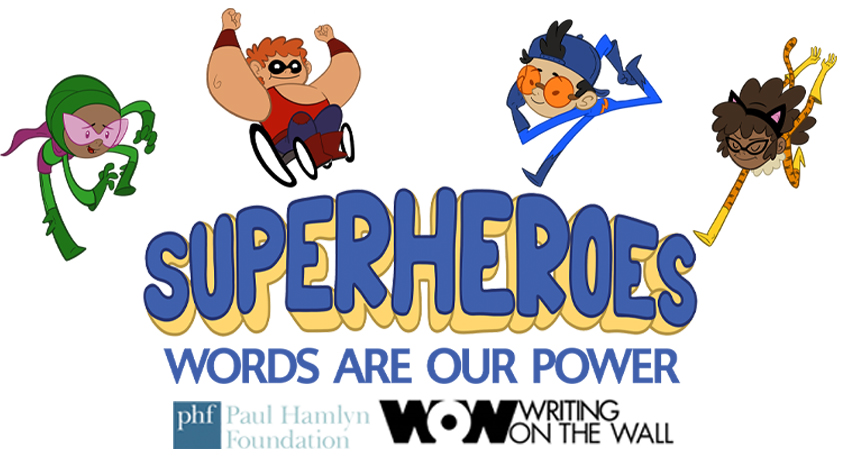
Click here to find out more about the Evaluation and Consultancy Services we offer.
